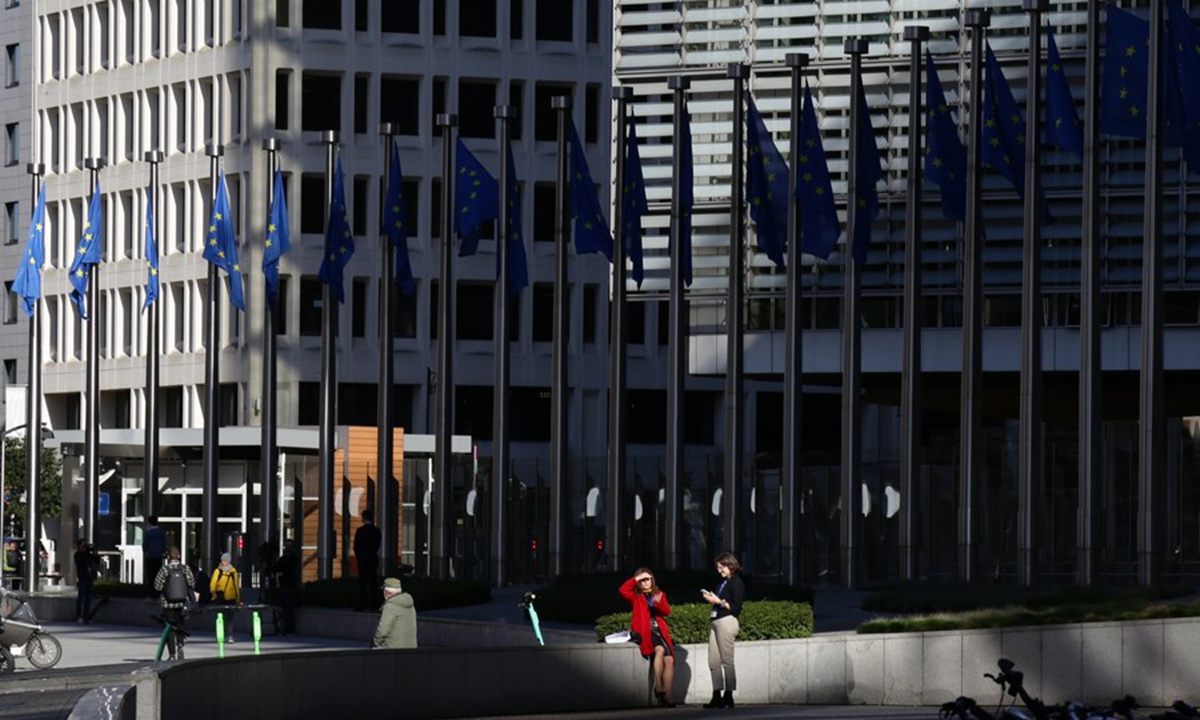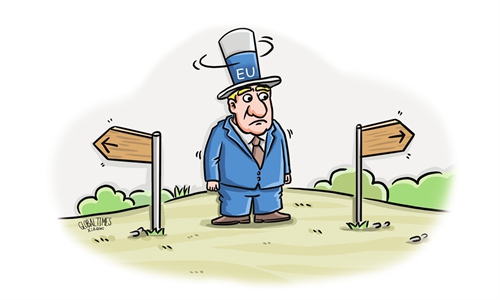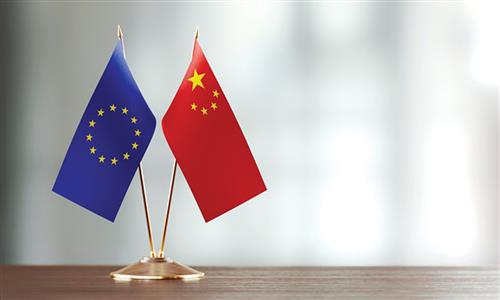
People are seen outside the building of the European Commission in Brussels, Belgium, Oct. 18, 2022. Photo:Xinhua
Europe is experiencing a storm, not from the periphery of Europe or other parts of the world, but from within the continent itself.
Europe should stop looking at the uncertainty of the world but instead focus on self-reflection. After a year of victory for a right-wing leader in Italy, the people of the Netherlands, another founding country of the European Union, have chosen the far-right leader Geert Wilders. "Turning to the right" has almost become an irreversible political trend in Europe.
Anti-immigration is a prominent feature of this trend. As demonstrated by the recent unrest in Dublin, Ireland, people's resentment toward Muslim immigrants is constantly growing. This poses a danger of Europe being engulfed in a storm of the clash of civilizations.
With less than seven months until the European Parliament elections, the rise of right-wing and far-right forces will continue to strengthen the Euroskepticism, which could potentially affect the outcome of the elections.
On the economic front, France was first regarded an uncertain factor earlier this year, and now it is Germany, the backbone of the European economy. Many economic institutions assess that Germany may be the only country among the major global economies to experience a recession.
The surge in illegal immigration, economic weakness and the Russia-Ukraine conflict have further heightened anxiety within the EU.
Internal issues within the EU have made them somewhat flustered when facing global issues. European media outlets are discussing the need to readjust their policies toward Turkey and reassess their policies toward the Middle East. There is no clear direction on how to deal with the rise of China.
The EU, standing at the crossroads, faces two intertwined challenges. The first is the lack of clear self-positioning. While the EU can feel that its position has shifted amid major changes around the world, a true recognition of the problem seems lacking. Many EU politicians maintain their assertive and arrogant stance, however, the foundations supporting their arrogance are gradually weakening.
The second challenge is that the leadership of the EU and its member states, although aware of the issues they are facing, no longer possesses stronger decision-making and governing capabilities. In particular, the ability to integrate and unite various social classes in Europe has significantly declined, and embracing populism has distorted the implementation of policies. The leaders in Europe can only resort to blaming and complaining about external factors, diverting attention from internal contradictions.
Facing severe challenges from the US, China and other developing countries, Europe, as a crucial global player, needs a clear direction to enhance its competitiveness. However, understanding its own position is a prerequisite for figuring out the next steps for Europe.
Europe needs a revolution of spirit. The immediate priority of this revolution is to have a precise understanding of its own position and not to remain wallow in its past glory and arrogance. Only by knowing its own position can Europe determine what it should do, what needs to be done and what it can achieve.
The upcoming China-EU Summit in Beijing next month presents a significant opportunity to establish a clearer China-EU relationship amid global uncertainties. Both sides need to address specific issues to promote cooperation and lay the foundation for further building mutual trust. Further cooperation between the two sides will benefit the EU in gaining a sense of direction for development. Embracing conservatism under the influence of the right and far-right forces is not the solution. Rediscovering the European spirit involves the dynamics of openness, inclusivity and competition.


